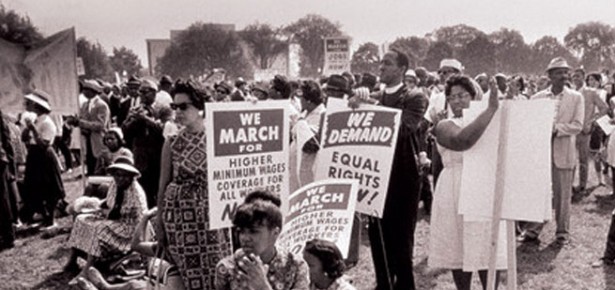
Raymond Gavins introduces his new book, The Cambridge Guide to African American History
My aim in this book, which targets secondary school and college students, teachers, adult literary groups, and general readers, is to inform the study, teaching, and appreciation of African American history.
Building on Earl E. Thorpe’s landmark The Central Theme of Black History (1969), I demonstrate that the central theme is blacks’ quest for dignity, freedom, citizenship, and equality.
To follow their methods and strategies in pursuing and sustaining that quest, I suggest engaging essays exploring black beliefs and ideals, social institutions and movements, over time and place. These are, among others, the Antilynching Campaign; Antislavery Movement; Black Nationalism; Black Power Movement; Civil Rights Movement; Conventions, National Negro; Education; Emancipation; Interracial Relations; Politics; Reconstruction; Religion; Segregation; Societies, Mutual Aid; and Student Activism.
Essays furnish See also topics as well as Further Reading sources, which can enrich discussion, thinking, and writing. Cross References highlight important subjects, too. Entries increase numerically after 1770 and especially for the nineteenth and twentieth centuries, although those for Africa, Agriculture, Architecture, Art, Dance, Family, Literature, Music, Religion, and Slavery cover key pre-1770 developments.
I stress later periods, including African American life and struggle to the Civil War and slavery abolition; institution building, survival, and resistance during segregation (1877-1954); development and outcomes of the modern civil rights and black power movements (1954-1982); and activism for equal justice along lines of race, ethnicity, gender, class, and sexual identity in the Post-Reform Period (since 1982).
Serving users as both a reference and educational tool, The Cambridge Guide to African American History stresses African American aspirations, struggles, breakthroughs, achievements, and contributions to America and the world. I hasten to add that this Guide’s contents are based on a reading and synthesis of existing scholarly publications not only in American and African American history but also in humanities and social sciences, together with some published and digitized original source materials cited in in Further Reading and Cross References.
For me, the most interesting and usually challenging part of the content selection process was to read studies in a variety of thematic and topical areas: blacks in Business, Film, Foreign Affairs, Journalism, and Labor to Law Enforcement, Medicine, the Military, Science, and Television; selecting information to incorporate; then, within page and word limits, writing accessible entries.
Furthermore, the contents provide needed historical perspective to many civil, racial, and social equity legal challenges in today’s news.
In a February 4, 2016, Washington Post article on the Supreme Court, Robert Barnes comments: “And before the justices adjourn in June, the court will decide cases involving a host of issues at the heart of the political debate: affirmative action in university admissions, abortion restrictions, the ability of religious objectors to opt out of the Affordable Care Act’s contraceptive coverage obligation, and President Obama’s plan to shield millions of illegal immigrants from deportation.”
I discuss the nondiscrimination, allowed use of race to achieve diversity, and equity issues underlying that admissions case, Fisher v. University of Texas(2008), in various entries: Affirmative Action; Bakke v. Board of Regents of California (1978); Brown v. Board of Education(1954); Civil Rights Act of 1964; Constitution, US (1789); Milliken v. Bradley (1974); and Swann v. Charlotte-Mecklenburg Board of Education(1971), all implicating our nation’s legacies of inequality.
As February marks Black History Month and the 56th anniversary of the Greensboro, North Carolina sit-ins against white-only lunch counters, we should re-engage African Americans’ pursuit of “one nation, indivisible, with liberty and justice for all.”
Latest Comments
Have your say!